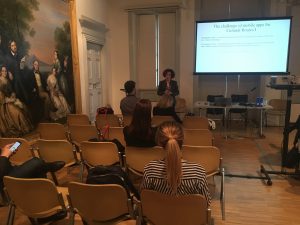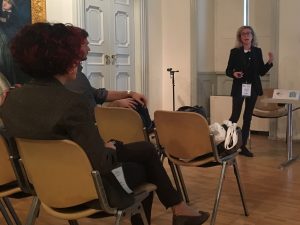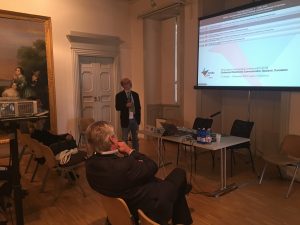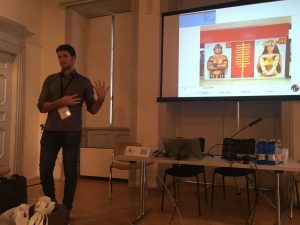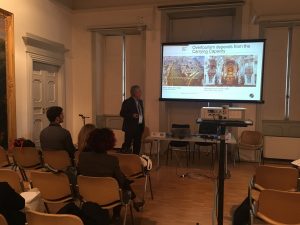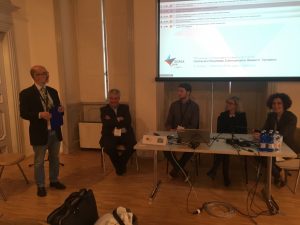The parallel session on communicating Cultural Heritage to global audiences of travelers was held at the at ECREA Conference 2018 in Lugano (31.10. – 03.11.2018). The 7th European Communication Conference was held in Lugano for the first time – with more than 1.400 participants.
2018 has been designated as the ‘European Year of Cultural Heritage’. All European institutions – including Switzerland, which has joined the celebration with its own logo – committed themselves to support the organization of a series of initiatives and events across Europe, with the aim of “encouraging people to discover and engage with Europe’s cultural heritage to reinforce a sense of belonging to a common European space” (http://europa.eu/cultural-heritage). Everyone is addressed, in particular young people, since cultural heritage has a universal value: it shapes our identities and everyday lives, thus constituting the basis on which to build the future of Europe. Cultural heritage takes different shapes and forms, from tangible assets like monuments, artifacts, archeological sites, up to intangible ones like practices, oral traditions, performing arts and traditional craftsmanship. It also includes natural heritage shaped by human beings, like cultural landscapes, as well as digital resources that are both resources created in digital form and resources that have been digitalized to preserve them.
Tourism might be both an opportunity and a threat for cultural heritage destinations. On the one side, in fact, visiting and experiencing heritage allows both to discover and understand people’s diversity, as well as to appreciate and promote own heritage, this way fostering inter-cultural conversations. On the other side, instead, massive unmanaged tourism might ruin tangible heritage, commodify intangible traditions, challenge the relation between locals and their heritage.
The Year of Cultural heritage represents a valuable opportunity to reflect on how to communicate cultural heritage, so to raise people awareness on its universal value and on the necessity to preserve it and to pass it on to future generations. The contributors to this panel will discuss issues related to the following three topics: (i) the contribution of Information and Communication Technologies (ICTs) to support and promote cultural heritage; (ii) how to communicate it to global audiences, and in particular to emerging insource markets for tourism in Europe (e.g.: China and India), markets whose cultural backgrounds are very different; (iii) how to communicate heritage already destroyed, or at risk of being destroyed due to natural hazards or violent extremism.
More information about the ECREA conference (31.10. -03.11.2018) here.
